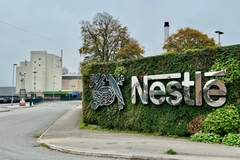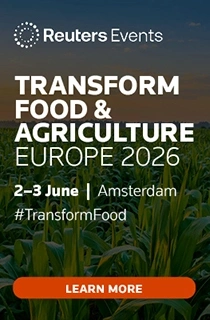
- Industry news
Industry news
- Category news
Category news
- Reports
- Key trends
- Multimedia
- Journal
- Events
- Suppliers
- Home
- Industry news
Industry news
- Category news
Category news
- Reports
- Key trends
- Multimedia
- Events
- Suppliers
More Consumers in Support of Local, Seasonal Shopping

15 Jan 2015 --- A new opinion poll released today on the eve of the Global Forum for Food and Agriculture 2015 in Berlin reveals high public support for more food to be produced sustainably and sold locally. The poll results come at a time when the new European Union Agriculture Commissioner, Phil Hogan, has been mandated to push for more jobs and sustainability in the farming sector and will be discussing with international agricultural ministers in Berlin how to meet this challenge.
The opinion poll, conducted by TNS Opinion in 8 EU countries on behalf of Friends of the Earth Europe, reveals:
• 89% of people interviewed saw buying local food as supporting local jobs. 78% thought that locally produced food provided a balanced and complete diet.

• However, 73% of respondents said it was difficult to find information about locally produced food – and 67% said there weren't enough places to buy local food near them.
• 91% of people surveyed said that their governments should do more to support production and access to local food.
Speaking about the results of the polling, Stanka Becheva, food campaigner for Friends of the Earth Europe, said: "We currently have an increasingly globalised and industrialised food system that destroys jobs, damages the environment and creates costly food scandals. This poll shows public support for something different, and that politicians need to do a lot more to support sustainably produced local food and to build local food economies. We challenge Agriculture Commissioner Phil Hogan to lead the debate in transforming the food system that puts local and green food with short supply chains at its core. This is a massive win-win case where the public, local food producers, and the environment can all benefit."
The opinion poll also found that half of people currently buy food from farmers' markets or farmers' shops, and 52% of people check if their food is locally produced. 85% of the respondents buy from the shop closest to them, and 69% said that locally produced food is too expensive.
Current European farming policies, which focus primarily on farmers growing agricultural commodities for world markets, have resulted in nearly 5 million European jobs lost in just 12 years, an increasing share of climate emissions and a dramatic loss of biodiversity. In recent years, only an estimated 20% of food in the European Union is produced and marketed at local level. Globally, this figure is about 80%. At the same time, short food supply chains contribute to improved well-being through supporting small businesses and local jobs, reducing the carbon footprint from food distribution, strengthening the contact between consumers and farmers and ensuring the access to good and healthy food.
However, a BBC poll in 2014 revealed that just while 86% of consumers in the UK claimed to find seasonality important, and 78% claiming to buy seasonal produce, only around 10% knew when some of the most common fruit and vegetables were actually in season.
And while the big four supermarkets may be losing out to smaller, local convenience stores, this does not necessarily mean supporting local businesses. Many local convenience stores are owned by big business and in the UK, nearly one pound in every seven is spent at Tesco.
Shopping locally, even at a local greengrocer or farm shop, if you can find one, still often supports big, industrial scale farming, shipped in from warmer climes. Think Spanish oranges and intensively farmed Dutch tomatoes, available all year round.
Many people are put off by the cost of shopping local, especially at Farmers’ Markets, and for some, busy lives mean a one-stop shop at the local supermarket is all that they have time for.
One scheme that might make it easier for consumers to shop more locally is The Food Assembly. This scheme, which is hugely popular in France, works by putting people in contact with local food via the internet, where they can order their local shop and collect it from a local venue close-by on a designated date. The Food Assembly is present in France, Germany, Italy, Spain, the UK and Belgium.










